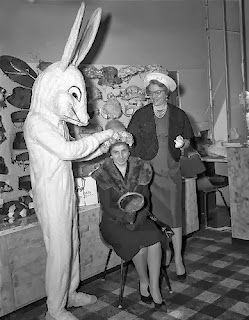 |
| Photo by Frank Kovalchek |
 |
| Photo by dave_mcmt |
Children
love to yell into canyons or across gymnasiums because their voices echo. Who
can blame them? The effect is fun—words seem to multiply themselves.
However, when a reader picks up a story, they won't enjoy
echoes as much as kids in a rocky gorge. When repetitive words or phrases are used in writing, the prose become redundant and
cluttered. Authors who don't weed out these pests chance aggravating their readers. Who
wants to be that writer?
Many, if not most, of you probably know what echoes are. However, to be honest, when I got my very
first critique I had no idea what echoes were or why they're a problem. So, in
case there are others like myself, below is a brief example.
Before:
 |
| Photo by S.C. Asher |
As I shut the front door behind the exiting potbellied sheriff, I leaned my forehead against the window next to it. I held up pretty well while the man stood in the front entry, looking uncomfortable. He told me my dad was missing at sea, presumed dead. Apparently, whoever was in charge of these things decided that they'd expended all the man hours and resources they could, in search of Dad and his three companions.
I didn’t know Dad’s companions, but I wondered if somewhere there was a similar local officer giving their families the bad news. Did those officers ask the same sort of questions of them? Questions like, "Do you have a family member you can call to come and stay with you? And how old are you?"
After:
 |
| Photo by Katrina Sincek |
As I shut the front door behind the exiting potbellied sheriff, I leaned my forehead against the window next to it. I held up pretty well while the man stood in the entry, looking uncomfortable. He told me my father was missing at sea, presumed dead. Apparently, whoever was in charge of these things decided they'd reached the end of the resources available to search for Dad and his three companions.
I didn’t know the other guys, but I wondered if somewhere a similar local officer was giving their families the bad news. Did those cops ask the same sort of questions of them? "Do you have a family member you can call to come and stay with you? And how old are you?"
Authors may have to be inventive to keep echoes at bay, especially when the culprits are nouns that might seem to be the only available options for certain objects, places, or people. In these cases, my suggestion is to get creative and stretch one's comfort zone.
Tools I've come across to search out echoes are few, but perhaps they will help some authors.
 Foremost, critique partners. Good CPs are worth their weight in gold. If you don't have any, get some. Mine help me cut back on the junk in my manuscripts all the time. If you do have them, be thankful. I'm always grateful for my awesome critique group, The Off Beats.
Foremost, critique partners. Good CPs are worth their weight in gold. If you don't have any, get some. Mine help me cut back on the junk in my manuscripts all the time. If you do have them, be thankful. I'm always grateful for my awesome critique group, The Off Beats.Another handy tool I ran across is a Word Counter & Text Analyzer on Sporkforge.com. This little baby has several functions. This is how it's described on their website:
This tool will analyze your copy, essay, or other text for word usage & frequency, as well as recurring sequences of words and other measures. Specifically, it will report the following:
- Total word count.
- List of all words used, and their number of occurrences, both total & at the beginning and ends of sentences.
- Total estimated sentence count, as well as the min, average, and max sentence length.
- Punctuation usage info.
- List of recurring sequences of words.
- List of consecutively repeating words.
One of my CPs turned me on to Wordle.net. The site gives this explanation of what it is:
 |
| This Wordle cloud represents Cathering Scully's book White Hollow |
Please note: I am not affiliated with Sporkforge.com or Wordle.net, nor am I endorsing them.
Do you have any websites or tools you use to eradicate echoes from your writing? Please share them in the comments.
There are seven more Writing Tighteners coming in the weeks ahead. Next, we'll tackle Sentence Structure Stagnation.
 Ten Writing Tightener Series includes:
Ten Writing Tightener Series includes:
1. Filters 10/14/132. Dead-weight Words 10/21/13
3. Echoes 10/28/13
4. Sentence Structure Stagnation 11/4/13
5. Redundancy 11/11/13
6. Telling vs. Showing 11/18/13
7. Voice Not Character Appropriate 11/25/13
8. Brevity Blunders 12/09/13
9. Head Hopping 12/16/13
10. Underestimating the Reader 12/23/13
If this post has been helpful to you, or you feel it might help others, please share it on Facebook or tweet about it on Twitter. I'm working to grow my readership, and would appreciate all the help I can get. Sign up to receive these posts by email (above/right side-column). I also invite you to join this blog as a member. Thank you for visiting.



















